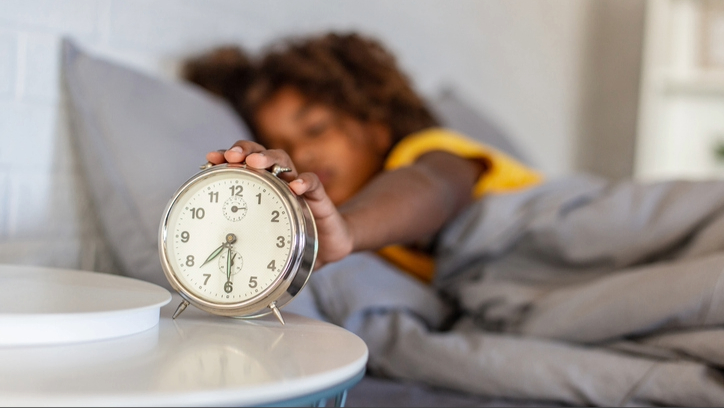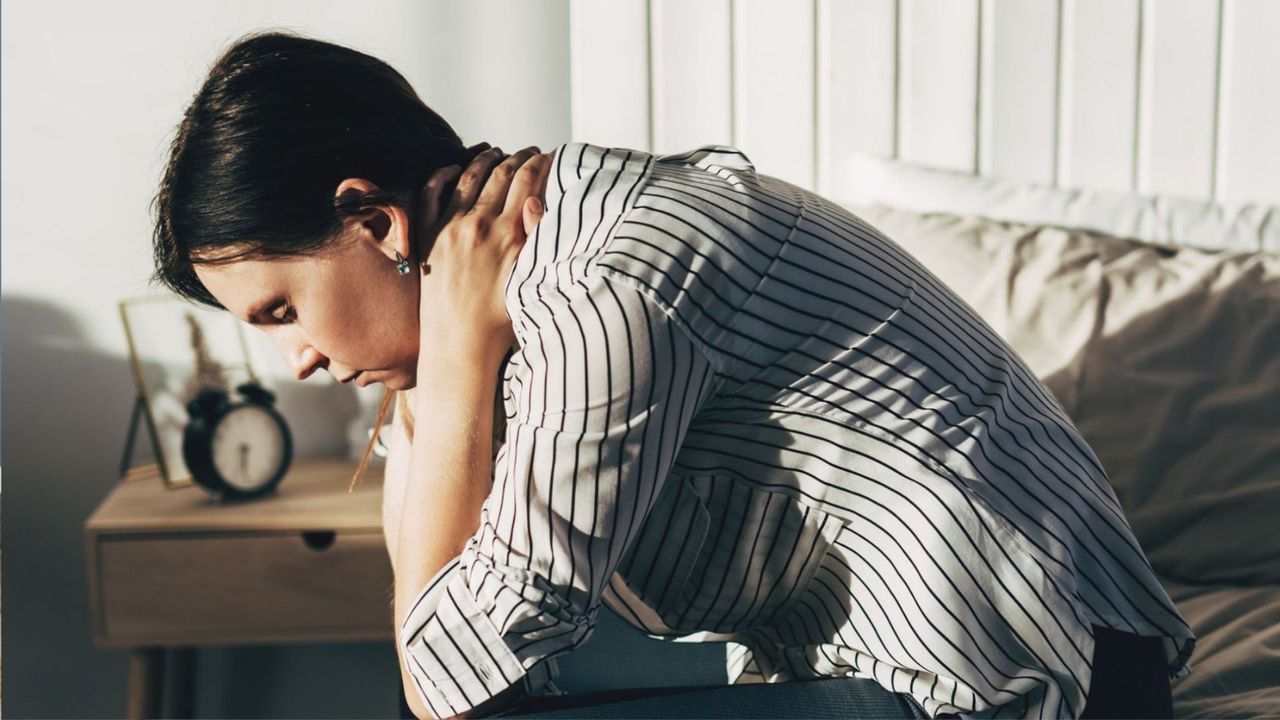
The Ikea Sleep Report 2025 is out and it’s packed with fascinating insights about our sleep from surveys taken around the world. But the one takeaway that stood out to the Tom’s Guide Sleep Team focused on sleep inequality.
While sleep is accessible and free to everyone, quality sleep is now a luxury, the report found. This suggests certain demographics don’t get enough sleep or enough good sleep. One, being women, for example.
And this was highlighted in the report by comparing the sleep scores of high-income earners compared to lower incomes. The results were pretty shocking. So we’re digging deeper to find out why, as well as offering some sleep tips that don't cost a penny.
Key takeaways about sleep inequality
- Lower-income earners had a sleep score of 59 and higher-income earners had a sleep score of 67
- Half of the people surveyed agree they need more money to improve their sleep quality
- The lower your income, the higher the frequency you’ll experience bad dreams or nightmares (17% of low-income earners versus 12% of high-income earners.)
With over 55,000 participants, the Ikea Sleep Report offers valuable insight into global sleeping patterns.
To determine ‘sleep score’ the brand asked five questions in which respondents scored their answer on a scale between one and 20. Then, the collective score out of 100 made up the sleep score:
- Do you feel like you’re getting poor or good sleep?
- How many hours are you sleeping daily?
- How often do you wake up at night?
- How long does it take you to fall asleep?
- Do you feel tired or refreshed when you wake up?
From these responses, global experts analyzed the results to reveal common patterns around the world.
It became clear that lower-income earners had an average sleep score of 59 and higher-income earners had an average sleep score of 67, proving that those with less money weren’t as satisfied with their sleep.
Digging deeper into this, researchers asked whether they felt they needed more money to improve the quality of their sleep. Half of those asked said yes.
Similarly, those who were unsatisfied with their work life balance had an average sleep score of 52, while those who were satisfied enjoyed a sleep score of 67.

Why do lower-income earners experience worse sleep?
So, why is this?
The survey also found that 27% of people who are financially insecure wake up more than twice per night (compared to the global average of 19%).
Waking up frequently in the night can have a huge knock on effect on the quality of the sleep you get, and it can lead to sleep deprivation, fatigue and health conditions.
17% of respondents say stress is the main barrier to getting a good night’s sleep
“For people who are financially insecure, they often have a longer commute to work. They’re working multiple jobs, or even working long hours. These factors can really impact sleep,” explains Behavioral Sleep Scientist on the report, Vanessa Hill.
And money is one of the biggest stressors people face, with 17% of respondents saying stress is the main barrier to getting a good night’s sleep.
And it’s a vicious cycle. “Stress can lead to poor sleep and this can therefore affect the rest of our lives,” says Dr Sophie Bostock, founder of The Sleep Scientist.
Stress can also lead to parasomnias, like nightmares and night terrors, as well as certain sleep disorders. In fact, the report found that the lower your income, the higher the frequency you’ll experience bad dreams or nightmares, which can damage your sleep quality further.
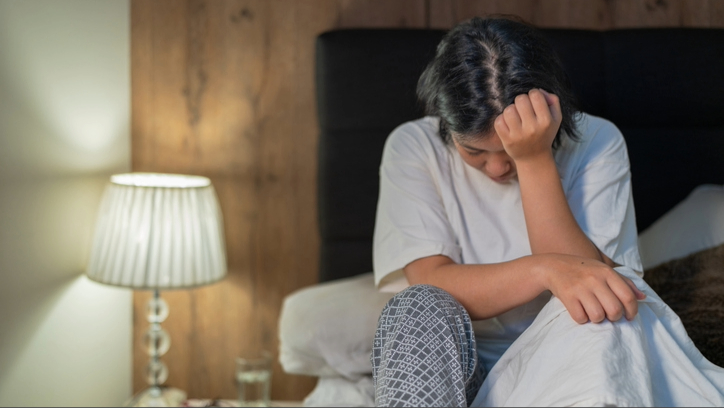
Sleep tips that don’t cost a thing
If stress and anxiety are keeping you awake, it’s worth talking with a professional to get the help you need. But here are some steps you can take to supercharge your sleep that don’t cost a thing.
Practise a stress-relieving bedtime routine
A nighttime routine can help your mind and body wind down before bed. Humans are creatures of habit which means a routine can help signal to us that it’s time for sleep.
Incorporate activities into your evening that help relieve stress. This can include reading a book (proven to reduce stress by 68%), having a warm bath or meditating.
Repeating the same behaviors will make your routine more effective, so it might take a couple of weeks for it to feel like it’s working.
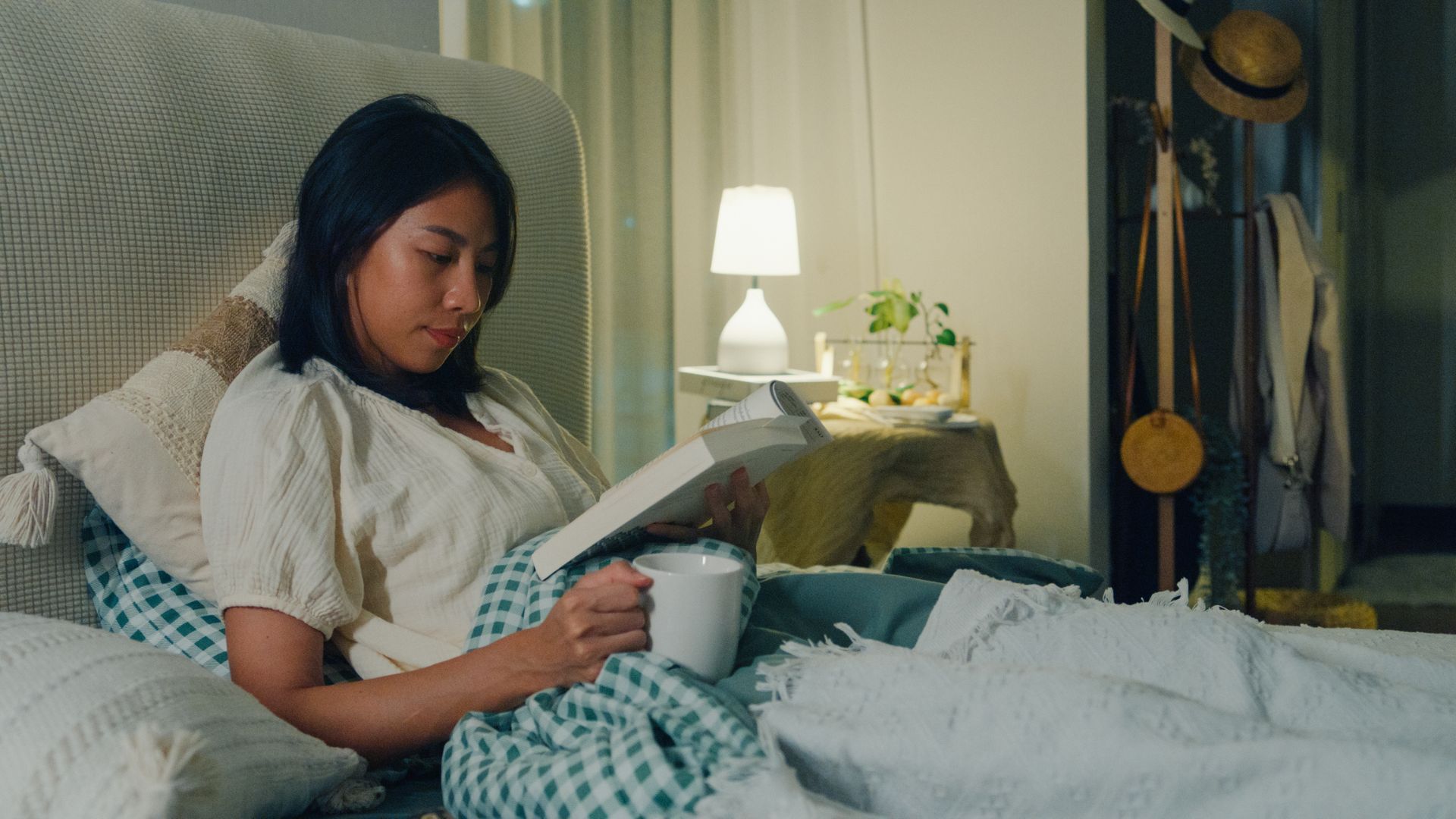
Improve your sleep hygiene
Sleep hygiene refers to the habits we have and our environment that has an impact on our sleep.
Good sleep hygiene practices include eating three balanced meals a day, not using screens in the bedroom and avoiding caffeinated drinks in the afternoon.
Assess your lifestyle and identify whether anything might be damaging your sleep quality.
Examples could include smoking and drinking alcohol, working from your bedroom and going to bed at different times each night (more on that below).
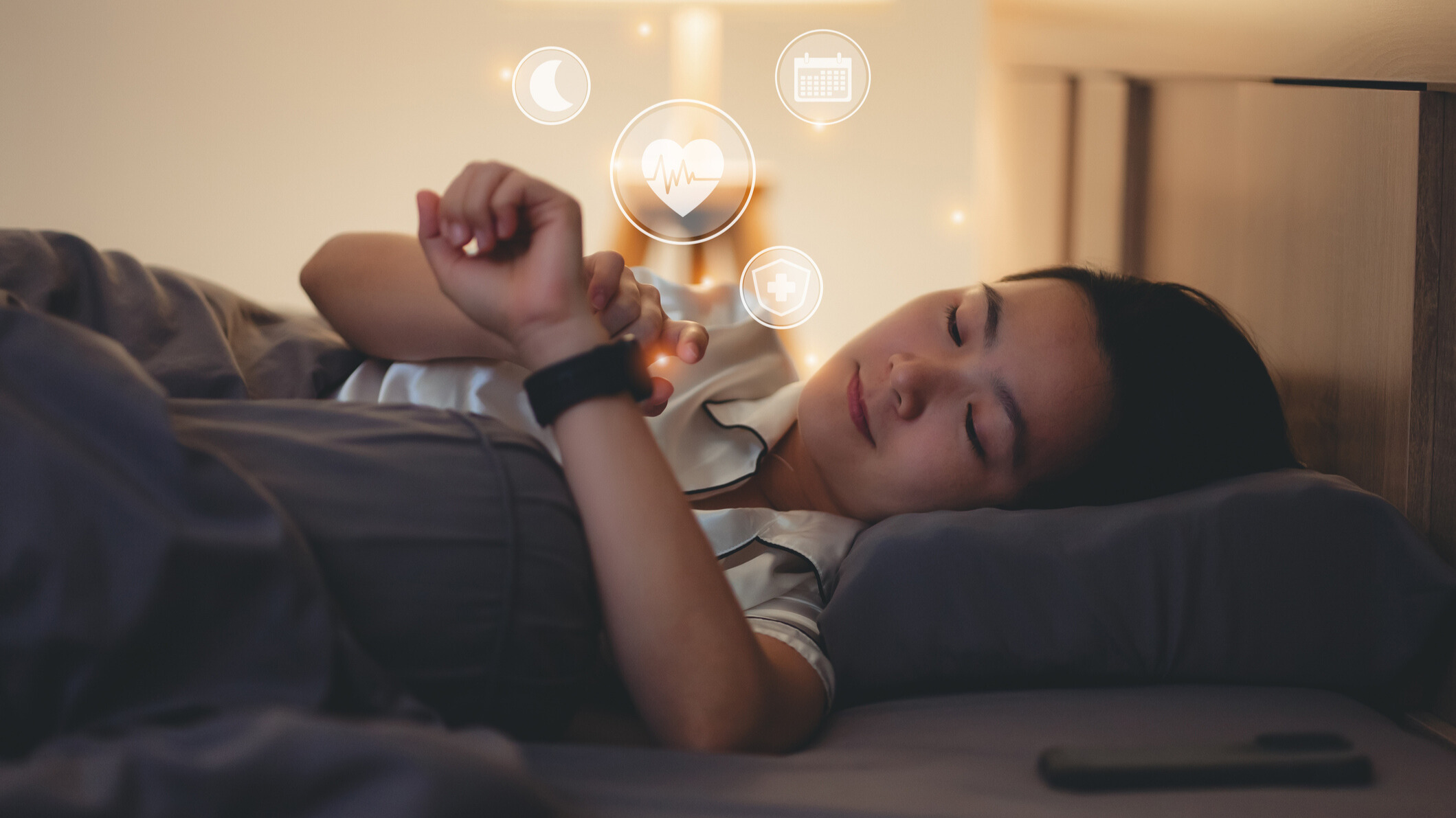
Stick to a regular sleep schedule
How sleepy we feel and when we fall asleep is controlled by our circadian rhythm.
Also known as our body clock, this determines our energy levels but to make it work efficiently, we have to keep it ‘in time’.
To do this, you need to go to sleep and wake up at the same time every day. Yep, even on weekends.
This will help regulate your sleep hormones (primarily melatonin and cortisol), meaning you’ll have consistent energy throughout the day and fall asleep easily at night.
